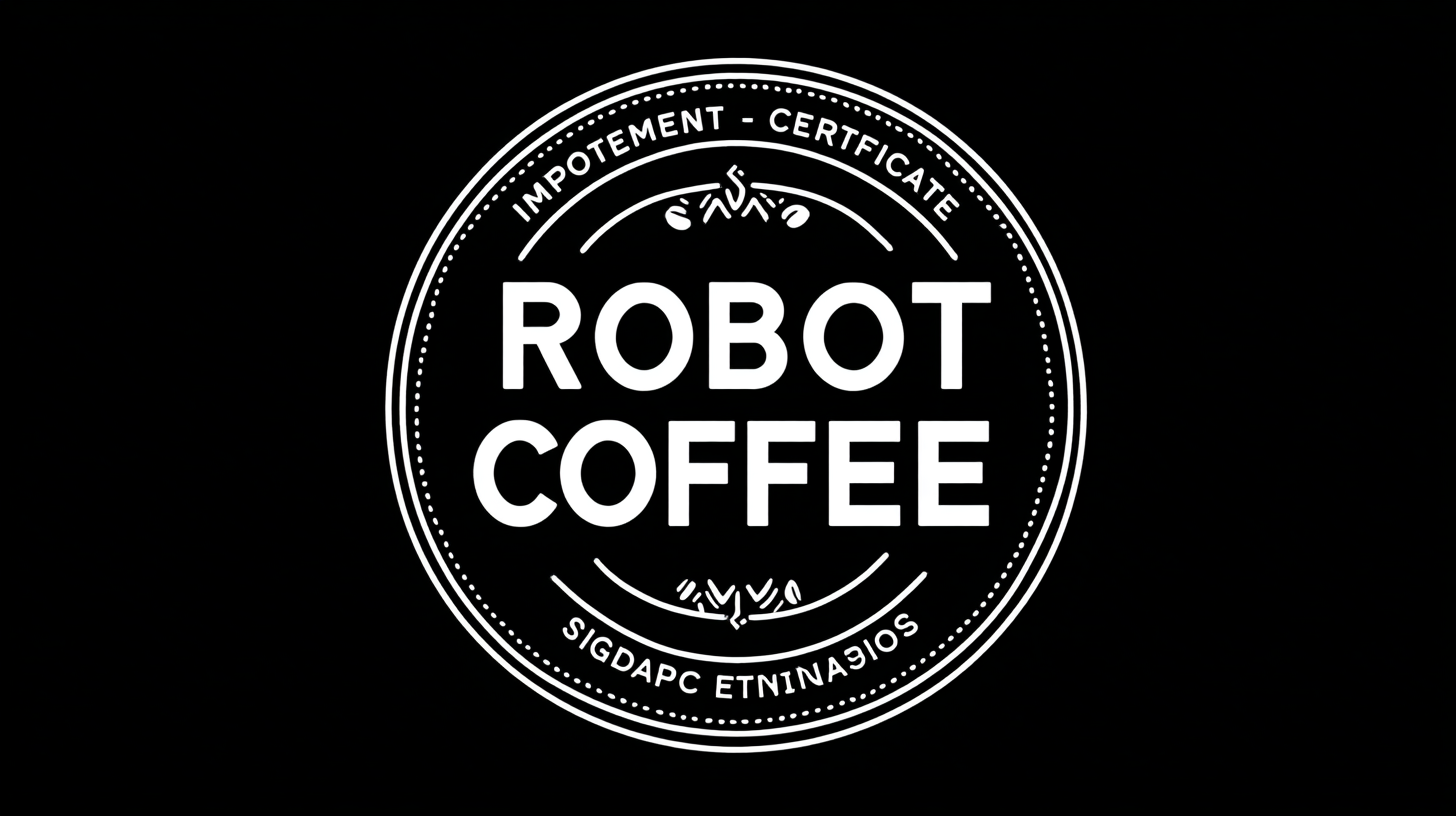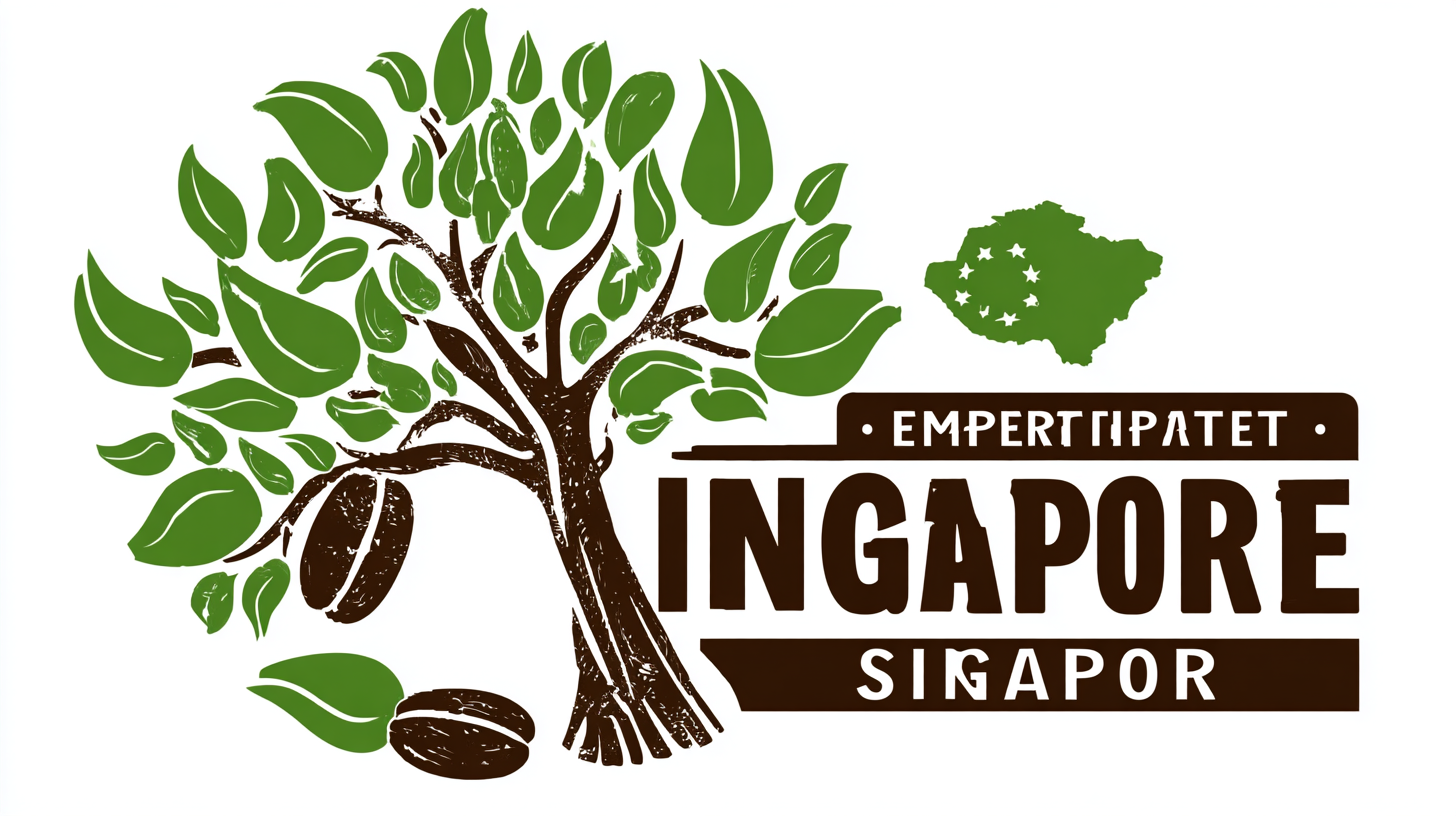Navigating Import and Export Certifications for the Best Robot Coffee in Singapore
As the demand for innovative coffee experiences continues to rise, Robot Coffee Singapore has emerged as a compelling trend in the beverage industry. According to a report by Market Research Future, the global coffee market is projected to reach approximately $102.15 billion by 2026, with the Asia-Pacific region, including Singapore, witnessing significant growth driven by advancements in automation and robotics.

In this landscape, import and export certifications play a crucial role in ensuring that businesses adhere to safety, quality, and regulatory standards. Navigating these certifications can be complex, yet it is essential for companies aiming to provide top-tier robotic coffee solutions. This blog will delve into the various certification requirements and alternatives available for businesses looking to thrive in Singapore's dynamic coffee marketplace.
Navigating the Regulatory Landscape for Importing Robot Coffee Machines in Singapore
When considering importing robot coffee machines into Singapore, understanding the regulatory landscape is crucial. The country has specific certifications and compliance requirements that ensure products meet safety and quality standards. Familiarizing yourself with agencies such as the Singapore Civil Defence Force (SCDF) and the Infocomm Media Development Authority (IMDA) can streamline the process. Engaging a local agent who is well-versed in these regulations can provide valuable insights and expedite your journey through the bureaucratic maze.
**Tip:** Always verify that the robot coffee machines adhere to Singapore's safety regulations. This includes electrical safety standards and compatibility with local power supplies. Additionally, having clear documentation regarding the machine's functions and capabilities can help ease the import process.
Moreover, pay attention to import duties and taxes that may apply. Different classifications for equipment can lead to varying rates, impacting your overall costs. Staying informed about any updates to trade tariffs or regulations is also essential for a smooth import experience.
**Tip:** Keep a detailed record of all correspondence with regulatory bodies. This can be vital for quick resolution of any issues that may arise during the import process, ensuring your robot coffee machines can hit the ground running as soon as they arrive in Singapore.
Essential Certifications Required for Coffee Equipment Imports in 2025
When it comes to importing coffee equipment into Singapore, understanding the essential certifications required is crucial for compliance and business success. According to a 2022 report by the International Coffee Organization, Singapore is among the top markets for specialty coffee in Asia, reflecting a rising consumer demand. However, navigating the import regulations can be complex, especially with the anticipated changes in 2025 aimed at enhancing food safety and quality standards.

Importers must be prepared to secure certifications such as the Singapore Food Agency's (SFA) Food Import License, which ensures that food equipment meets local safety and hygiene standards. Furthermore, equipment must comply with the Health Sciences Authority's (HSA) requirements regarding electrical safety and materials used. A compliance study by the Asia-Pacific Economic Cooperation (APEC) indicated that 40% of import issues in the coffee equipment sector arise from non-compliance with these certifications, highlighting the importance of thorough preparation to avoid costly delays and fines. Robust certification adherence not only facilitates smoother trade processes but also assures consumers of the safety and quality of their coffee experience.
A Comprehensive Guide to Exporting Singapore's Finest Robot Coffee
When it comes to exporting Singapore's finest robot coffee, understanding the certification requirements is essential for ensuring a seamless process. Certification not only legitimizes the quality of the product but also helps businesses comply with international trade regulations. In Singapore, key certifications include the Food Safety Assessment (FSA) and the Halal certification, which are crucial for accessing broader markets, particularly in regions with Muslim populations. Proper adherence to these standards can greatly enhance consumer confidence and open up additional distribution channels.
Moreover, navigating the intricacies of export documentation is another pivotal aspect for coffee entrepreneurs. From the Certificate of Origin to compliance with international health standards, having a clear plan in place is vital. Collaborating with local export agencies and industry associations can streamline this process, providing valuable resources and support. Businesses should also consider attending trade shows and exhibitions that focus on coffee to network and gain insights into potential markets. By prioritizing these certification and documentation steps, exporters can effectively position Singapore’s robot coffee on the global stage.
Key Industry Trends Impacting Coffee Imports and Exports in Singapore by 2025
As Singapore positions itself as a global coffee hub, understanding the key industry trends impacting coffee imports and exports by 2025 is crucial for businesses. One notable trend is the increasing demand for specialty coffee, driven by consumers' evolving palates. This shift towards quality over quantity means that importers should focus on sourcing high-quality beans from renowned regions, ensuring they meet various certification standards.

When navigating the complex landscape of certifications, it’s essential to keep abreast of both local regulations and international standards. Importers should consider certifications like Fair Trade or Rainforest Alliance to appeal to environmentally-conscious consumers.
Tip: Collaborate with trusted suppliers who are well-versed in certification requirements. This partnership can aid in seamless compliance and help maintain the integrity of your coffee offerings.
Additionally, the rise of e-commerce is reshaping the coffee export market. With more consumers purchasing online, businesses must adapt their strategies to reach a global audience effectively.
Tip: Invest in a robust online platform and consider using social media marketing to showcase unique coffee offerings, especially those that have been ethically sourced and certified, to attract more customers.
Case Studies: Successful Compliance in Robot Coffee Imports and Exports in Singapore
Singapore's burgeoning robot coffee industry has witnessed remarkable success, championing innovative practices while navigating the complex landscape of import and export certifications.
Notably, companies like RoboRoast and BrewBot have set benchmarks for compliance, illustrating effective strategies for seamless operation.
RoboRoast, for example, streamlined its import process through meticulous documentation and engagement with local regulatory bodies, ensuring that their high-tech coffee machines met all necessary safety and quality standards.
This proactive approach not only facilitated smoother imports but also bolstered their reputation as a reliable player in the market.
Similarly, BrewBot's export strategy emphasizes adherence to international certifications, enhancing its competitiveness on a global scale. By obtaining ISO certifications and adapting their products to meet the specific requirements of various markets,
they successfully positioned themselves as leaders in robotic coffee solutions.
Their case study highlights the importance of understanding diverse regulatory landscapes and the value of fostering strong relationships with both suppliers and governmental agencies. Through these examples, it becomes clear that achieving compliance is not just about checking boxes;
it's about building a sustainable business that thrives in a rapidly evolving industry.